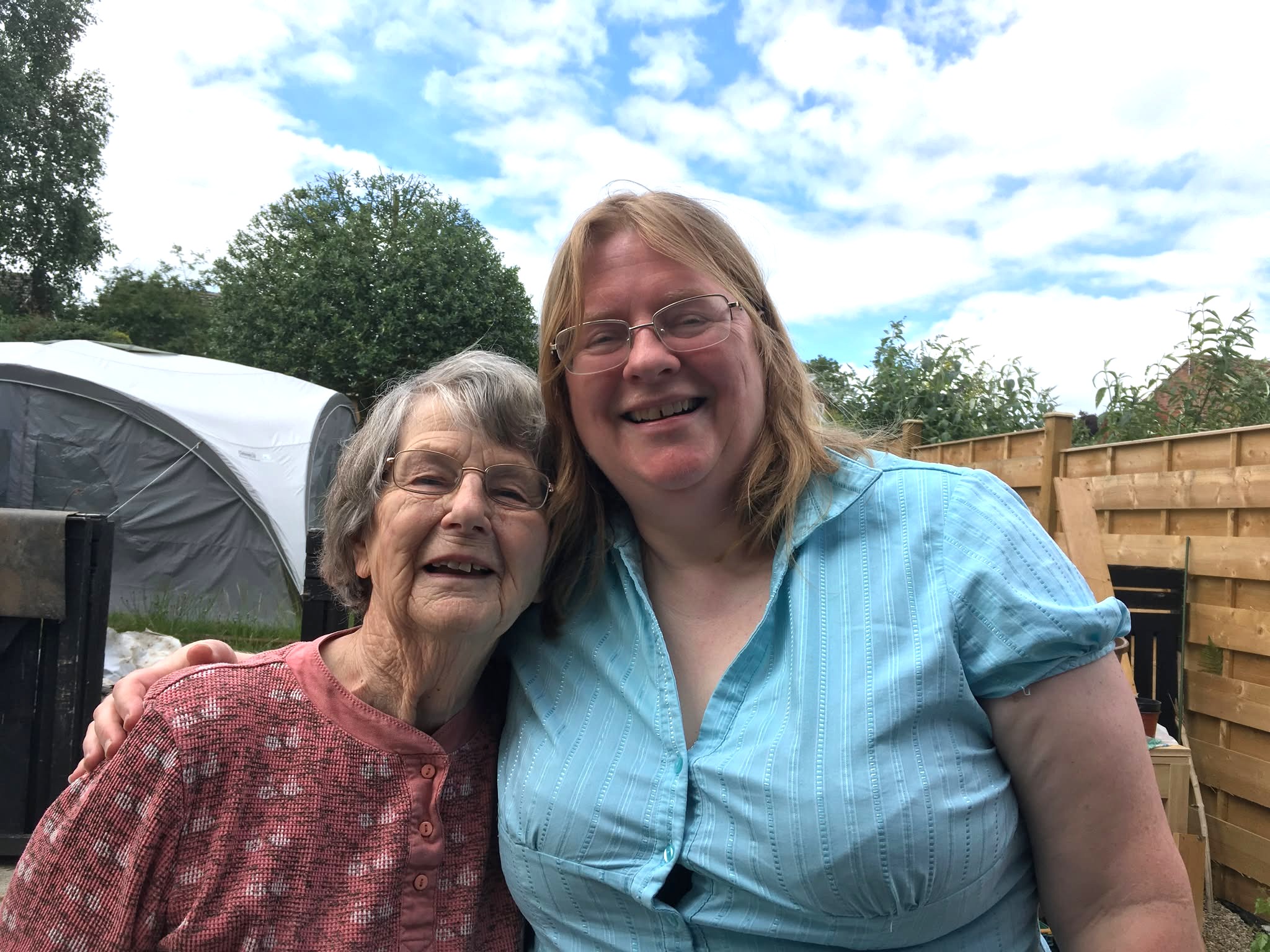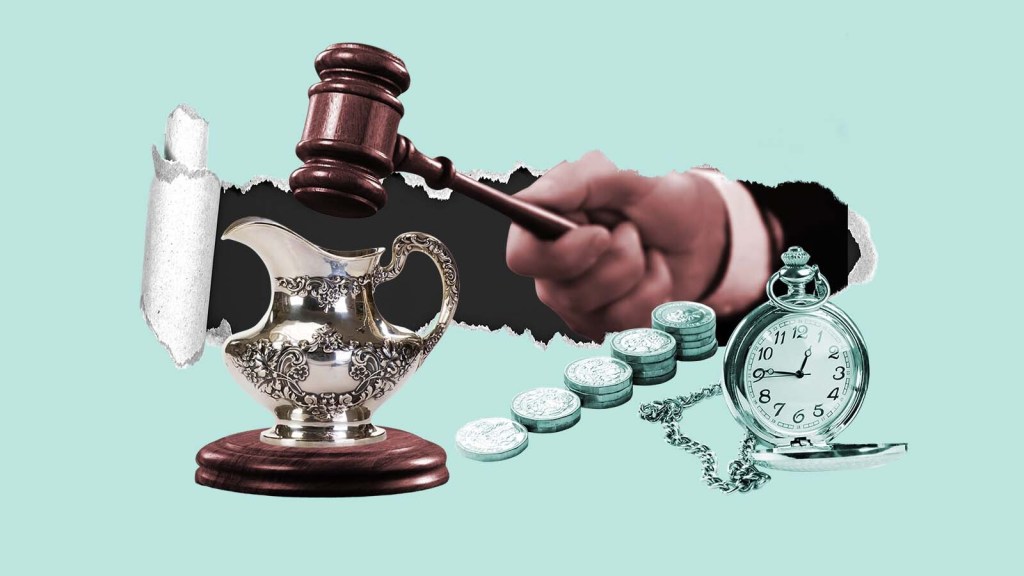Navigating the Auction Process: A Guide to Selling Valuables
When Kathryn Dunn’s father passed away in 2017, she invited her mother, Janice, to move in with her. However, this transition required Janice to downsize from the family home she had occupied since 1979. “My parents had accumulated many possessions, but since I live in a three-bedroom house with my 28-year-old daughter, Holly, it was impractical for Mum to bring everything,” explained Kathryn, 59, a professionally trained hypnotist.
They started by selling unwanted DVDs and kitchen items through Facebook Marketplace, along with furniture that wouldn’t fit in Kathryn’s home. “Anything that remained unsold was donated to a local charity shop, which even picked up some of the heavier items,” she recounted.
During their sorting, they discovered a collection of first-edition James Bond novels and decided to obtain professional valuation: “We suspected they had value, so we wanted to ensure we didn’t sell them for too little without consulting a specialist.”
The Dunn family reached out to their nearby auction house, Duggleby Stephenson in York, to assess the value of the Ian Fleming first editions among other books they thought might attract buyers.
Kathryn recalled childhood visits to local auctions, which were a family tradition for finding unique second-hand goods before online selling became common. “This time it felt different; the auction house seemed prestigious compared to the ones I knew. The appraiser was not particularly enthusiastic about many books, but they became excited about the Flemings,” she said.
The auction took place in January 2020, with the six books netting an impressive £1,000. “Receiving the email notifying us of the sale was a wonderful surprise. Mum was thrilled—she had originally bought them for about £5,” Kathryn shared. “She treated herself to a takeaway that evening and used the rest for living expenses.”

Understanding the Auction Process
While in-person attendance at auctions is still available, the majority of buyers now participate online, significantly widening the potential audience for sellers.
Charles Hanson of Hansons, an auction house with locations across England, notes, “The traditional image of an auctioneer in a drafty room is a thing of the past. What used to be a regional operation is now a national enterprise, allowing auction houses to sell items globally.”
Typically, auction houses charge around 20 percent in fees, among other possible costs, so it’s crucial for sellers to clarify the fee structure beforehand.
Even though an item may not always sell, auction settings can create competition among buyers, potentially driving the final price above the house’s estimate and resulting in greater profits.
Matthew Barton of Olympia Auctions in London highlighted the open and competitive nature of auctions, stating, “It’s in the auctioneer’s best interest to maximize the sale price for each item.”
Determining the Appropriate Price
Sellers uncertain about the value of their items can typically receive initial assessments via email or messaging platforms from auction houses. “If you are unsure whether something is appropriate for auction, send a photo,” suggests Hanson.
Barton adds, “If you’re not a specialist, you might not realize the true worth of an item. Nowadays, most sellers provide images via email, allowing us to offer estimates before bringing items in.”
Consulting an auctioneer can also provide insights into current trends and demand for collectibles, as tastes can rapidly evolve. “It’s fascinating how what was once considered valuable may change drastically in just ten years,” Hanson reflects.
Selecting the Right Auction House
The choice of auctioneer can influence the type of bidders attracted to your items. Barton advises potential sellers to conduct preliminary research, noting, “Look for specialized auctions, review past sales, and examine the expertise of the auction house.”
A trustworthy auctioneer will direct you to the best venue for your item if it’s better suited elsewhere. Websites like The Saleroom list participating auctioneers and their offerings, or local auction houses can easily be found through online searches.
Choosing a fitting auction house is essential; different firms may cater to varying items or have wider reach on bidding platforms. Hanson emphasizes, “Research is vital to ensure you choose the right auction house for your goods.”
Auctioning items can be an enjoyable experience, as many individuals attend to watch their possessions sell. With the prevalence of online options, remote viewing has also become a popular method.
Kathryn Dunn, who lost her mother in 2023, is considering another auction: “I frequently sell second-hand goods, and selecting the right venue is critical. Social media platforms like Facebook work well for low-value items. It’s often more important to ensure that those items go to someone who appreciates them rather than focusing solely on profit.”
“For valuable items like family heirlooms or furniture, I believe auctions represent the best opportunity to maximize return.”
From Family Heirlooms to Holidays
After years of collecting dust in the attic, Jonathan Zeigel, 62, decided it was time to clear out the art and antique furniture inherited from his parents.
“They had numerous Georgian mahogany pieces, initially thought to be investments, but with changing tastes, their value diminished,” reflected Sarah, Jonathan’s wife, 63.
They opted to sell their most valuable items, intending to use the proceeds for their sons—Marcus, 16, Hector, 23, and twins Benjamin and Thomas, 26.
Sarah remarked, “Our sons have significant autism and would be unable to handle an auction themselves in the future. I wanted to ensure our items didn’t just disappear with a house clearance after we’re gone.”
Their first auction item sold in 2023 was a 19th-century officer’s clock, fetching £110 at Chiswick Auctions in London, less £13.20 in fees. Two artworks by Welsh painter Augustus John, purchased by Jonathan’s mother in the 1960s, sold for £500 (around £383 after fees), and a silver cutlery set garnered £560 at Hansons in London.
They utilized the funds for a family trip to Sri Lanka in October. “It was our first family holiday abroad outside of package deals, and the boys truly enjoyed it,” said Sarah.
Jonathan, a government lawyer, aims to auction his childhood stamp collection later this year, hoping for a good price while also valuing the chance to find custodians who will cherish the history behind the items.
“If you give something away, the next owner might not appreciate it,” Sarah noted. “It’s also beneficial that auction houses can provide guidance and establish reserves to avoid underpricing.”

Valuable Inheritance: A Surprising Sale
Inheriting her grandfather Ted’s watch in 2020 sparked mixed feelings for Jennifer Han, as she felt it was of little use being a non-watch wearer.
“It was a stunning Rolex with a gold face and leather strap, purchased by Grandad in the 1960s. I locked it in a drawer while contemplating its future,” she recounted, explaining how a watch enthusiast friend prompted her to seek a valuation from Bonhams in London.
After a specialist’s appraisal valued the watch between £3,000 and £4,000 last April, Han, 28, decided to list it at Sotheby’s, where auction fees are around 15 percent.
Surprisingly, Han was thrilled when she received an email post-auction stating the final bid reached £12,000. “It exceeded any expectation I had. I felt a mix of joy and being overwrought. My grandfather’s gift became something far more substantial than I envisioned. I used part of the earnings for a trip to Italy, visiting Florence and Rome, while saving the remainder,” she shared.




Post Comment